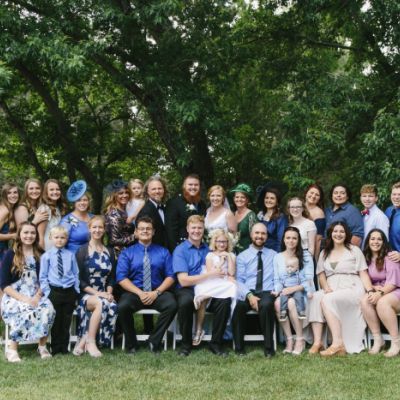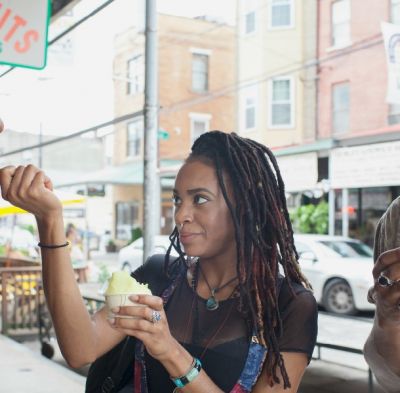POLYGAMY VS POLYGYNY: DEBUNKING MISCONCEPTIONS
Even with the rising support of feminism and the LGBTQIA+ community, polygamy is often cast aside as the weird, freaky one in the group. Thanks to pop culture and the inescapable narrative of straight, monogamous relationships, alternative romantic and sexual lifestyles like polyamory relationships are often vilified. It’s easy to reciprocate hate and animosity, but the poly community believes in a friendly exchange of ideas. So it’s time to set the record straight and bust some polygamy vs polygyny misconceptions and debunk myths surrounding consensual non-monogamy as a whole.
Why all this hate against polygamy?
It would be foolish to ignore some of the darker histories associated with polygamy, especially polygyny. Polygyny, the marriage of one man to multiple wives, is often compared to society’s patriarchal nature. Men in power enjoying the benefits of multiple women partners has negatively influenced the cultural attitude towards poly lifestyles.
Most notably, religious male leaders or abusive male partners have traditionally coerced young women into non-consensual (or seemingly consensual) relationships—a big source of hate against polygamy. This is a despicable stain on polygamous relationships, but only a small fraction of what it actually is now.
Is polygamy just another form of patriarchal control?
Today, polygamy’s rebirth clearly demonstrates that the former imbalance of power and choice between man and woman is finally leveling out. Moreover, polygamy today has a broader definition. It’s no longer a strict bond between a straight man and multiple wives or a straight woman and multiple husbands. For starters, bisexual men, bisexual women, queer men, or queer women can enter a polygamous relationship if they choose to.
The key is in everyone’s consent and honest communication. No two relationships are exactly the same, after all. Just like a monogamous couple might clearly define their boundaries about what cheating constitutes in their household, a polygamous couple in the dating stage can define what makes them uncomfortable and what the other people in the relationship can do to build trust.
Women—or anybody, for that matter—are no longer forced into a polygamous relationship for fear of violence or evil consequences. The polyamory and polygamy dating world is actually rooted in choice. In a way, modern polygamy flips the table on patriarchal ideals. Women are free to choose what they want, even if they are in a polygamous relationship. They may even enter a relationship with a sister wife should they desire to do so.
Renowned researcher and expert in consensual non-monogamy Dr. Elisabeth Sheff perfectly sums up the anti-patriarchal nature of polyamorous relationships in her article, “Polyamory is Deviant—But Not for the Reasons You May Think.” The three main reasons are that women are now on equal negotiating status with men, women can now pursue multiple partners if they choose to, and that polyamory forces us to ask questions like, “Why is monogamy so pressed into our society that we feel like it’s the only choice?” When it comes to polygamy dating, having a choice is front and center, so the argument that polygamy is just another form of patriarchy is extremely weak.
Is polygamy dating an abnormality only a few people practice?
It might surprise you to know that about 22% of Americans have been in a consensually non-monogamous relationship at least once (Haupert, 2016). Judging by the rising visibility of polygamous relationships in the media, this number has likely increased since the article’s publication. It’s safe to say polygamy dating and the polyamory world isn’t just an anomaly a few hundred people practice in secret.
Chances are, you know people who are in polyamorous or polygamous relationships already. Although recent legislature like Massachusetts’ broadened definition of a relationship to include households with more than two adults is a step in the right direction, polygamy representation still has a long way to go.
Polygamy dating is just an excuse for sexual experimentation
Perhaps the most common misconception of all is the inseparable connotation between polygamy dating and sexual exploration. While sexuality has a place in polyamory or polygamy, it’s usually not the only driving force for individuals seeking these types of relationships. Just like one monogamous relationship can prioritize emotional needs over sexual needs, a polygamous relationship might focus on other aspects of a healthy relationship, as well.
In fact, polyamorous dating requires even more mindful relationship building than a monogamous partnership. Multiple people building a home or relationship requires more mental, emotional, social, and sometimes financial effort. As a result, polygamous ties produce deeper commitments that are often harder to shake than a monogamous partnership.
This isn’t to say that every monogamous relationship is fickle, nor that every polyamorous relationship is a serious, lifelong commitment. It’s to say that critics of polygamous relationships can’t—or refuse—to look beyond the stereotype of a hypersexualized polygamous relationship. In Cathy Young’s Time article about same-sex marriage and polygamy, she argues that “..the private sexual choices of adults should not be criminalized. But they are not automatically entitled to cultural approval or societal support systems.”
This is a vast simplification of polygamy and polyamorous relationships. Again and again, articles like these reduce polygamy and polyamory to a mere sexual preference instead of a relationship choice, perpetuating the tired stereotype that consensual non-monogamy is rooted in sexual deviance.
The future of polyamory, polygamy, and polygyny
The umbrella term of polyamory and its subcategories polygamy and polygyny deserve a place in mainstream media and culture without the obvious prejudice against alternative lifestyles. Although the polygamy dating world is being acknowledged through accessible T.V. shows and docu-series, the focus is often misplaced.
In the future, we hope to be portrayed in a positive, or at the very least objective lens, instead of a sideshow watched with a discerning eye. For now, we’ll continue to educate and enlighten others without taking offense at deep-seated prejudices or preconceptions. After all, understanding begins with an open conversation.

Published By: Sister Wives
Matchmakers Inc
Comments:
Related Articles
-
 Legalize Polygamy: Study
Aug 31 '2018, 2:47 PM
Legalize Polygamy: Study
Aug 31 '2018, 2:47 PM
-
 Judge To Decide Future Of Polygamous Towns In Arizona, Utah
Aug 31 '2018, 2:52 PM
Judge To Decide Future Of Polygamous Towns In Arizona, Utah
Aug 31 '2018, 2:52 PM
-
 Thom Miller: Pastor marries pregnant girlfriend with consent of his wife
Aug 31 '2018, 3:55 PM
Thom Miller: Pastor marries pregnant girlfriend with consent of his wife
Aug 31 '2018, 3:55 PM
-
 Germany to end unofficial tolerance of polygamy
Aug 31 '2018, 3:48 PM
Germany to end unofficial tolerance of polygamy
Aug 31 '2018, 3:48 PM
-
 Sister Wives family makes home in inclusive Arizona city
Aug 31 '2018, 4:54 PM
Sister Wives family makes home in inclusive Arizona city
Aug 31 '2018, 4:54 PM
-
 Decriminalize Polygamy Kody Brown Fights For Plural Marriages
Aug 31 '2018, 8:15 PM
Decriminalize Polygamy Kody Brown Fights For Plural Marriages
Aug 31 '2018, 8:15 PM
-
 Polygamy In The Black Community
Sep 29 '2018, 10:08 PM
Polygamy In The Black Community
Sep 29 '2018, 10:08 PM
-
 What Is Polygamy?
Sep 30 '2022, 9:23 PM
What Is Polygamy?
Sep 30 '2022, 9:23 PM
-
 All This Love but Why Do I Still Feel Low
Dec 5 '2018, 11:58 AM
All This Love but Why Do I Still Feel Low
Dec 5 '2018, 11:58 AM
-
 Men and Polygamy
Jan 26 '2019, 10:56 PM
Men and Polygamy
Jan 26 '2019, 10:56 PM
Rate
Recent Articles
-
 Polyamory Secondary Partner
Apr 22, 2:26 PM
Polyamory Secondary Partner
Apr 22, 2:26 PM
-
 Polyamory Commitment Ceremony
Feb 20, 4:38 PM
Polyamory Commitment Ceremony
Feb 20, 4:38 PM
-
 Sister Wives Family Tree
Feb 4, 11:52 AM
Sister Wives Family Tree
Feb 4, 11:52 AM
-
 5 Polygamy Dating & Relationship Rules
Jan 22, 1:16 PM
5 Polygamy Dating & Relationship Rules
Jan 22, 1:16 PM
-
 Sister Wives Unveils a New Era of...
Jan 7, 8:51 AM
Sister Wives Unveils a New Era of...
Jan 7, 8:51 AM
Most Viewed
-
 Red Flags in Online Poly Dating
Apr 27 '2019, 10:47 PM
Red Flags in Online Poly Dating
Apr 27 '2019, 10:47 PM
-
 Polyamory, Being More Than Friends
Jan 26 '2020, 1:00 PM
Polyamory, Being More Than Friends
Jan 26 '2020, 1:00 PM
-
 Poly Love and Nosy Neighbors
May 2 '2019, 11:58 AM
Poly Love and Nosy Neighbors
May 2 '2019, 11:58 AM
-
 Know Your Poly Terms and Conditions
Aug 14 '2019, 1:16 PM
Know Your Poly Terms and Conditions
Aug 14 '2019, 1:16 PM
-
 A Direction For Polygamy
May 13 '2019, 10:16 AM
A Direction For Polygamy
May 13 '2019, 10:16 AM
Most Discussed
-
 Polyamory Secondary Partner
Apr 22, 2:26 PM
Polyamory Secondary Partner
Apr 22, 2:26 PM
-
 Seeking a Sister Wife: Emotional...
Sep 21 '2023, 3:37 PM
Seeking a Sister Wife: Emotional...
Sep 21 '2023, 3:37 PM
-
 Finding a Sister Wife: Online Etiquette
Jun 29 '2022, 10:23 PM
Finding a Sister Wife: Online Etiquette
Jun 29 '2022, 10:23 PM
-
 Sister Wife Meri Brown Thrives Amid...
Jun 21 '2021, 6:27 PM
Sister Wife Meri Brown Thrives Amid...
Jun 21 '2021, 6:27 PM
-
 Know Your Poly Terms and Conditions
Aug 14 '2019, 1:16 PM
Know Your Poly Terms and Conditions
Aug 14 '2019, 1:16 PM






